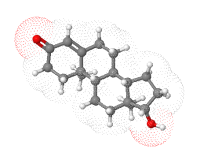December 12, 2006
No Policing the Social Aspects of Life
 As a swede, I'm constantly amazed how many sane drug policy ideas are proposed in Britain. Now the sports minister Richard Caborn questions the ban on 'social drugs' in sport. He suggested that the key anti-doping issue in sport was whether drugs enhance performance or not, and that the drug authority Wada should not be policing the "social aspects of life".
As a swede, I'm constantly amazed how many sane drug policy ideas are proposed in Britain. Now the sports minister Richard Caborn questions the ban on 'social drugs' in sport. He suggested that the key anti-doping issue in sport was whether drugs enhance performance or not, and that the drug authority Wada should not be policing the "social aspects of life".
Being in general in favor of allowing people to enhance themselves, I can nevertheless agree that for sports fairness purposes the participants should agree to not enhance (or all enhance). But it is strange that the views in such a circumscribed and frankly odd area of society should be used to set policy in general about enhancing drugs. If I, fully informed of the risks, want to take steroids to build up my muscle mass for aesthetic purposes I cannot legally do this (and cannot get medical oversight to monitor my health) since all non-treatment use of steroids is banned as doping (at least in Sweden). It seems to me that the rational thing to do is to leave sports to set up its own rules, based on internal contracts rather than state law.
The most rational defense of anti-doping policies is to maintain the health of athletes. But elite athletes are already subjecting themselves to training that erodes their health even when fully legal. Hence it would make more sense to make health monitoring mandatory and keep people from participating if they would have a high likeliehood of being seriously injured, regardless of the cause of the problem.
The claim that athletes have a duty to be clean since they are idols to many seems very weak. Why not place the same legal demands on other celebrities, politicians or anybody successful? The bodies of athletes seem to have become a public property that has no rights to medical privacy and is controlled to a significant degree by outside rules, with every behavior under public scrutiny. I doubt we would accept that in any other profession, and it doesn't seem very moral in its current state. At the same time the ideals athletes are supposed to achieve are extreme; I get the impression that the ideal athlete is some kind of cartoonish warrior-monk. Yet people seem to want to see humans compete.
I think Mr Caborn was right when he said anti-doping agencies have no right to get into the social aspects of life, not even of athletes. Outside agencies only have a right to involve themselves in aspects of our lives that directly relate to their domain, such as through contract law or recognized social agreement. While it might be theoretically possible that society might agree that athletes have limited rights of privacy and that the general interest of sports overrules other human rights, I find it unlikely.
Posted by Anders3 at December 12, 2006 04:17 PM